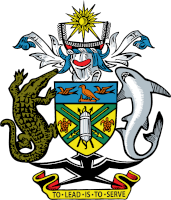SAFENET, a network of government and non-government organizations in the country are working on new ways to improve quality services for survivors of sexual and gender-based violence (SGBV).
A meeting convened last week from 29-30 August in Honiara, enabled the SAFENET network of members to progress their work to streamline survivors’ access to more timely, quality services especially through strengthened referrals and coordination of SGBV services in the Solomon Islands.
Ministry of Women, Youth, Children and Family Affairs (MWYCFA), EVAW Policy Coordinator, Ms Koisau Sade says “For more than eight years our SAFENET members have been working together to develop a more coordinated and quality referral system for GBV victims, and we’re excited this complex work is detailed in the recently released SAFENET Guidebook.
“Now we have to maintain the momentum and continue to meet regularly as a proactive network continuously improving how women and girl survivors, and other survivors of gender-based violence, can have better services and better access to those services.
“During this meeting, we’re making sure all our SAFENET services and agencies are aligned in our commitment to a survivor-centred approach, to finalise our network’s Terms of Reference, and to ensure we truly understand the roles of each other’s agencies and relevant laws.”
“We thank UN Women here in Solomon Islands for assisting the SAFENET members to arrange this and other meetings and workshops, and for its ongoing coordination and technical support,” she said.
SAFENET has had four inter-connected components to strengthen referral and coordination of SGBV services: SGBV direct services and support; referral to other service providers through an agreed and coordinated formal referral process; prevention and advocacy programs; and governance and accountability framework (SAFENET Guidebook 2017).
The network’s members are the Ministry of Women, Youth, Children and Family Affairs, Ministry of Health and Medical Services including the Social Welfare Division, Integrated Mental Health Service NRH, and HCC Clinics, Royal Solomon Islands Police Force (RSIPF) including Seif Ples; Public Solicitors Office (PSO); Family Support Center (FSC); and Christian Care Center (CCC).
SAFENET Coordinator, Juliana Zutu, explained the quarterly meetings are “essential to ensure quality services are being more easily accessed by survivors – from health to social services, justice and policing - as well as guidelines for coordination and governance.”
“By better coordinating referrals for survivors, and more clearly linking and connecting frontline services, we significantly increase the likelihood of women and girl survivors getting the quality help they need, when they need it,” said Ms Zutu.
MWYCFA EVAW Policy Officer, Koisau Sade, added that SAFENET’s work is a central part of the government’s work, as detailed in the Elimination of Violence against Women and Girls Policy 2010-2015 and 2016-2020.
“Those policies strongly articulate the need to focus on ensuring Gender-Based Violence victims’ and survivors’ access to medical, legal and protective services plus also the need for better service coordination and perpetrator accountability.
“Hence the government has taken leadership in establishing the SAFENET network in 2013, with this work remaining a national priority,” she said.
SAFENET is supported by the United Nations Joint Global Programme on Essential Services for Women and Girls Subject to Violence (ESP) being piloted worldwide, including in the Pacific region in Solomon Island and Kiribati.
ESP is an international joint-UN program involving UN Women, UNFPA, WHO and UNDP. The ESP program began in 2017 in the Pacific – continuing existing work already underway to improve access to quality essential services – coordinated by UN Women Fiji MCO and funded by the Australian Government. From 2019 the ESP, and its support for SAFENET, will continue to operate through the Pacific Partnership to End Violence Against Women and Girls, funded by the European Union and Australian Government with support from UN Women Fiji MCO.

